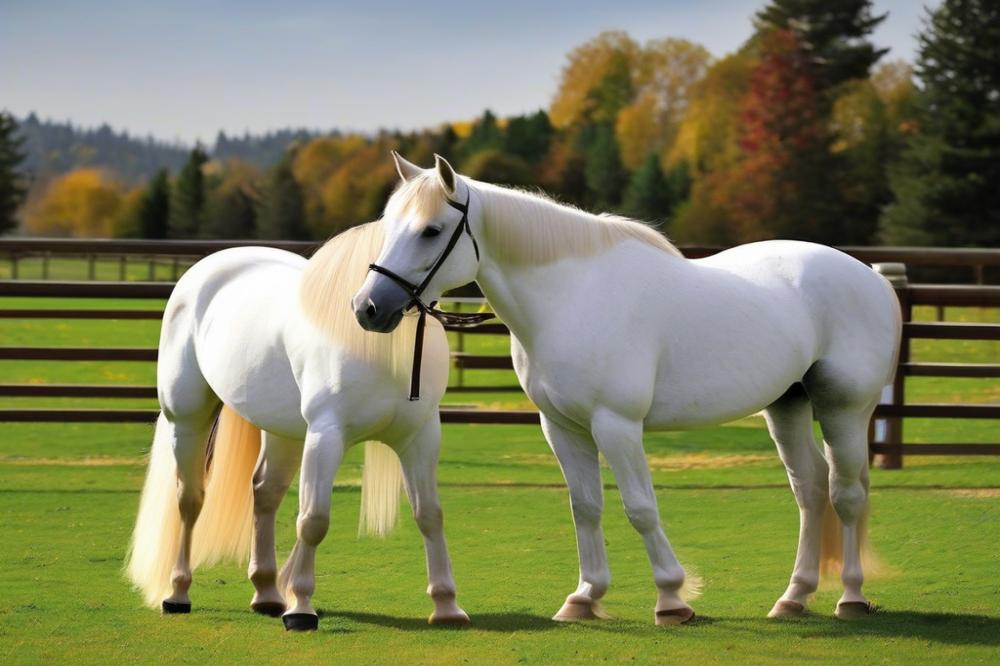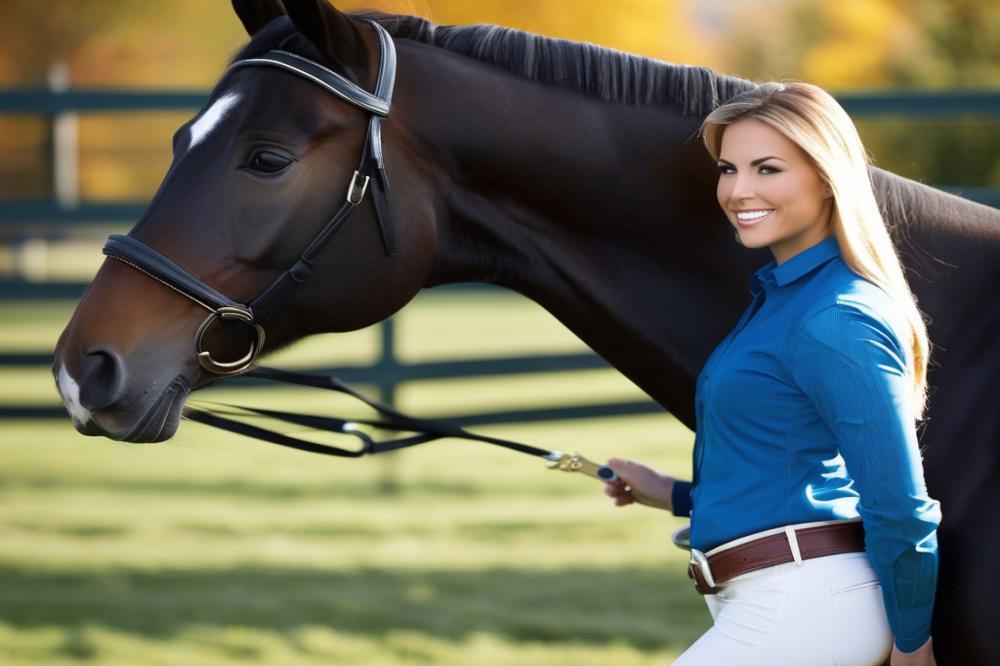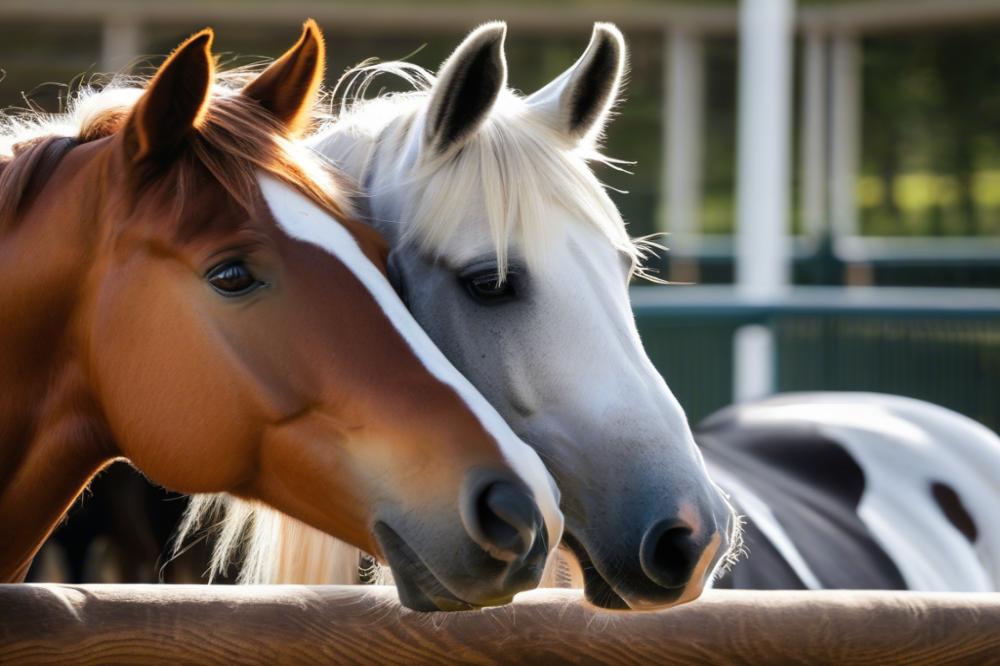Understanding Equine Therapy
Equine therapy, or horse therapy as it’s commonly known, is a wonderful approach that uses horses to help people improve their physical and emotional well-being. Imagine connecting with these majestic creatures while learning to trust, communicate, and grow. It’s not just about riding a horse; it’s a deep relationship that can lead to healing. Whether it’s through activities like grooming, riding, or simply being around horses, many individuals find a sense of peace and joy in equine-assisted therapy.
Horses play a unique role in therapy because they’re incredibly intuitive animals. Have you ever noticed how a horse can sense your mood? When you’re happy, they might prance around, but in times of uncertainty or fear, they can become cautious. This ability makes them excellent partners for those needing emotional support and guidance. People of all ages can benefit from this relationship, whether they’re dealing with trauma, anxiety, or something as simple as needing social interaction. After all, horses won’t judge you for your bad hair day or the fact that you threw your riding helmet across the barn!
The Goal of This Article
This piece aims to guide you on the fascinating journey of becoming an equine therapist. We will explore the necessary horse therapist requirements and provide insights into equine therapy training. Whether you’re a horse lover dreaming of a new career or simply curious about equestrian professions, there’s something for everyone. Along the way, we’ll touch on various aspects like the differences between arabian vs thoroughbred horses, to give you a better understanding of what it means to work with these amazing animals.
So, buckle up as we trot through the world of equine therapy. It’s not exactly the biggest horse race in the USA, but it surely is an exciting path that can lead to profound personal growth, both for you and the people you’ll help. Let’s get started!
Understanding Equine Therapy

Equine therapy, also known as horse therapy or equine-assisted therapy, is a form of treatment that involves interactions between people and horses. It can provide emotional support and help with various mental health issues. Imagine a troubled teen spending time with a gentle horse. Just being near that animal can make a world of difference. Horses mirror human emotions, which allows people to reflect on their feelings in a safe way. The benefits are many, including reduced anxiety, improved confidence, and a greater sense of connection.
Various forms of equine therapy exist. Some focus on riding, while others emphasize grooming and general care. Riding lessons can improve balance and coordination, which helps some individuals gain physical skills. Groundwork may involve leading or interacting with horses on the ground, making it ideal for those who may not be comfortable in the saddle. Each approach has different goals but shares the common thread of fostering a bond between horse and human. There are many options, allowing therapists to tailor their methods to the unique needs of their clients.
Equine therapists serve a wide range of populations. Children with autism often find solace in the presence of these gentle giants. Adults dealing with trauma or PTSD can also benefit greatly. Those struggling with mental health issues, such as anxiety and depression, show improvement through this unique interaction. Even veterans and individuals in rehabilitation programs find meaningful support through equine therapy. The beauty of this work lies in its ability to reach people from various backgrounds and life experiences.
Looking into equine therapy careers offers a glimpse into a rewarding field. Training usually includes specialized education related to mental health and animal care. To succeed, aspiring horse therapists must fulfill certain requirements, like understanding animal behavior and human psychology. Engaging with clients and horses alike demands patience and a good sense of humor. Fun moments often arise when working alongside these playful creatures!
Each horse brings its own personality to the therapy session. Some are calm, while others might be a bit mischievous. Clients often find themselves laughing in the moments when the horse steals the show. Equine therapy training teaches how to manage these situations effectively. Enthusiastic individuals in equestrian professions thrive in this setting because they understand the bond between animals and humans.
Necessary Qualifications and Education

Thinking about pursuing equine therapy careers? You’re not alone! Many are drawn to the world of horse therapy, which combines a love for animals with the desire to help others. To get started on this rewarding journey, you’ll need a solid educational background.
Educational Background Needed
First, a high school diploma is essential. That’s your base. From there, diving into relevant subjects like psychology, biology, and even animal science can be helpful. Understanding human behavior and animal care lays a strong foundation.
Relevant Degrees or Certifications
Seeking a degree in fields like psychology or social work opens many doors. Many horse therapist requirements include having a license or certification in one of these areas. Some programs specifically focus on equine-assisted therapy. Getting certified will definitely make you stand out.
Recommended Courses and Programs
No need to feel overwhelmed! There are various courses available that can help you along the way. Equine therapy training programs often cover essential topics, including animal behavior, therapeutic techniques, and safety guidelines. Look for programs that offer hands-on experience, which is crucial when working with horses.
Joining workshops or seminars can also enrich your knowledge. Networking with professionals in the field is a bonus. Equestrian professions are often about building connections as much as it’s about skills.
So, keep your options open! Certifications in related areas like counseling or occupational therapy can enhance your qualifications. Remember, a good horse therapist needs to understand both the human mind and the equine spirit. It’s a unique blend that makes this career path so special.
Gaining Experience with Horses

Understanding horse care is crucial for anyone interested in equine therapy careers. Horses are not just big pets; they require special knowledge. Familiarity with their needs, health, and behavior is essential. This knowledge lays the groundwork for becoming a competent horse therapist.
How do you gain this important experience? Hands-on opportunities are everywhere. You just need to know where to look. Early mornings at a stable can teach you a lot. Rubbing down a horse after a ride or mucking out a stall may seem mundane, but these tasks build connections. Each interaction helps you understand their unique personalities.
Opportunities for Hands-on Experience
Seeking internships or volunteer work opens many doors. Riding schools and therapeutic riding centers are great places to start. They often host programs that need eager hands. Joining a local horse club can also connect you with experienced horsepeople who are passionate about the field. Getting involved in equestrian professions can provide invaluable contacts. Networking is instrumental in this line of work.
Many equine therapy programs provide structured training. However, practical skills truly shine through real-world experience. Even just a few hours spent with horses each week can enhance your skills. The more you engage, the more confident you’ll become in your abilities. You can’t rush this process; time spent with horses teaches patience and respect.
Suggested Internships and Volunteer Work
Look for local therapeutic programs. Institutions often offer internships specifically for students looking to break into horse therapy. Many organizations welcome volunteers to assist with daily operations. This could include scheduling sessions, helping riders, or caring for the horses. Being in these environments fosters a sense of community.
Remember to keep your options open. Some farms may not be therapy-specific, but any experience with horses is valuable. Grooming, feeding, and training are all part of horse care. Each task helps you understand how to respond to the needs of a horse. Working with different breeds also broadens your perspective.
Don’t hesitate to reach out to local stables. They often need extra help during busy seasons. You might find yourself cleaning stalls one day and leading a lesson the next. Such varied experiences have their own charm and can lead to unexpected learning moments. Laughing at your mishaps is part of the journey, so embrace it!
Skills Required for Equine Therapists
Communication and Interpersonal Skills
Being a horse therapist is not just about horses; it’s also about people. Good communication is key in this field. You’ll need to talk with clients, their families, and even other professionals. A friendly smile can go a long way. Don’t forget to listen actively. You might hear concerns and hopes that guide your approach. Clear explanations can make all the difference. Some clients may feel nervous at first, so it’s important to build trust. Think of it like being a bridge between the horse and human worlds. Understanding both sides can create a powerful bond. As you build connections, remember that each person has their own story.
Compassion and Emotional Intelligence
Compassion is a must-have for anyone considering equine therapy careers. You’ll often work with individuals facing tough challenges. Your heart should guide you. This profession requires a deep understanding of emotions, both yours and those of the clients. A gentle touch can ease anxiety, not only for people but for the horses too. Emotional intelligence helps you read the room. Sometimes, you might have to comfort someone who feels overwhelmed. Patience will be your best friend on days like that. Laughter can be a great tool as well; a little humor can lighten the mood.
Understanding Horse Behavior and Psychology
Knowledge of horse behavior is crucial. Think of it as learning a new language. Horses have their own ways of communicating through body language. A twitch of an ear or the position of their tail says a lot. Engaging in equine therapy means you must learn to interpret these signals. Understanding horse psychology helps you connect with them better. Each horse has its own personality and quirks. Just like humans, some might be shy or aloof, while others could be friendly and outgoing. As you gain experience in equine therapy training, you’ll start to see patterns. Your goal is to create safe and effective interactions. Knowing how to approach each horse with care will enhance your practice and outcomes.
Certification and Licensing
Overview of Certifications Available
Becoming an equine therapist isn’t just about a love for horses. It requires obtaining the proper certifications. Several organizations offer credentialing in horse therapy, equine-assisted therapy, and other specialties. Some well-known certifications include the PATH International credential and certifications from the Equine Assisted Growth and Learning Association (EAGALA). Each program teaches different aspects of therapy with horses, so pick the one that speaks to you!
Steps to Gaining Certification
First, you need to research the certifications that appeal to you. Visit their websites for details. After that, consider enrolling in equine therapy training courses. These courses usually have both classroom and hands-on components. Gaining experience working with horses and clients is essential. Next, you will be required to complete a certain number of hours performing therapy services. Don’t forget to take your time on this — it’s not a race! Once you’ve met the requirements, study for and pass the certification exam. Celebrate that achievement; you’ve earned it!
Legal Requirements and Regulations
Understanding horse therapist requirements is vital. Different states have specific laws regulating equine therapy. Some may require you to have a therapist license along with your equine certification. It’s a good thing to check local regulations to avoid any surprises down the line. Since equestrian professions can involve working with vulnerable populations, staying informed about ethical guidelines is crucial. Riding into equine therapy careers isn’t just about riding horses; it’s about riding into a landscape of rules and responsibilities!
Building a Career as an Equine Therapist
Job Prospects and Employment Settings
Finding a job in equine therapy can be exciting. Many equine therapy careers exist in various settings. You might work at therapeutic riding centers or with rehabilitation facilities. Some therapists even collaborate with hospitals or clinics, using horse therapy for recovery. The demand for skilled horse therapists continues to grow as more people recognize the benefits of equine-assisted therapy. You could also work with individuals facing emotional or physical challenges. These settings not only pay the bills but allow you to make a real difference in people’s lives.
Developing a Professional Network
Building connections in your field is essential. Attend workshops and local equine events to meet others. Join professional organizations related to equestrian professions. These groups often share job postings and offer resources. Try to connect with mentors already working in the industry. They can provide valuable insights about customer care and industry trends. Engaging on social media platforms can also widen your circle. Share your experiences and knowledge with others. It can be a fantastic way to learn and grow.
Tips for Starting a Practice or Joining a Facility
Running your practice takes determination and planning. First, understand the horse therapist requirements in your area. Each state may have different regulations, so do your homework. If starting fresh feels overwhelming, consider joining an established facility. This route allows you to learn the ropes while gaining experience. Promote your services by creating a simple website or utilizing social media. Share success stories and testimonials to attract new clients. Networking can lead to referrals, so don’t hesitate to ask for help. Remember, people love a good story, especially about the bond between horses and their riders.
Jumping into equine therapy is rewarding! With time, patience, and the right connections, you can forge a fulfilling career. Your unique journey will offer a profound way to help others while staying close to the horses you love.
Continuing Education and Professional Development
Opportunities for Further Education
Becoming an equine therapist is just the beginning. Many options for further learning exist, including specialized courses and certifications. If you enjoyed your initial training, you might want to dive deeper into specific techniques. Workshops on different aspects of horse anatomy or behavior can be found. You could even take classes focused on mental health approaches in horse therapy. Online courses offer flexibility for busy schedules.
Importance of Staying Current in the Field
Staying current in the field is essential. New techniques and research constantly emerge in equine-assisted therapy. Trends shift, and being aware of these changes makes you a better professional. Continuous learning helps you to improve the care you provide. It also boosts your credentials in equine therapy careers. An outdated skill set can lead to missed opportunities or potential pitfalls. Even the best horse therapists must keep learning.
Resources for Ongoing Training and Workshops
Resources are abundant for ongoing training. Local equestrian centers may offer workshops to enhance your skills. Online platforms can provide webinars and virtual classes. You can also join professional associations where networking opens up many avenues. Connecting with other horse therapists allows you to share knowledge and experiences. Books and journals specific to horse therapy can be invaluable as well. There’s a wealth of information at your fingertips if you know where to look.
Stay curious and never hesitate to learn something new. After all, every bit of knowledge can make a difference in the equestrian professions.
Wrapping It All Up
So, let’s take a moment to recap the journey to becoming an equine therapist. First, you need a genuine passion for horses and a desire to help both the animals and their human companions. Education is critical, so pursuing courses or certifications related to animal therapy will set you on the right path. Getting hands-on experience through internships or volunteering at stables helps you sharpen your skills. Building relationships with professionals in the field will also prove beneficial—it’s all about networking!
Aspirations can seem daunting, but remember, every great equine therapist started somewhere. The road may have its bumps, like trying to understand all the different horse ear signs during a session or wondering why do wild horses have hoof problems? Asking questions and staying curious will guide your journey. Every horse is an individual, and being able to connect with each one brings both challenge and joy.
Now, let’s talk about fulfillment. There’s something priceless about helping a horse find healing and seeing the bond grow between an animal and its caregiver. Imagine working with a frightened horse, slowly gaining its trust, and ultimately watching it thrive. That moment is worth every second of effort you invested. Plus, it doesn’t hurt that it beats most desk jobs! After all, who wouldn’t rather be outside with horses than stuck in a cubicle, right?
In closing, becoming an equine therapist might not be a walk in the park, but it’s filled with adventures that can shape your life. If you stay dedicated and embrace the rewards of this career, you’ll find that working with horses can be one of the most fulfilling paths you could choose. Go ahead—take that first step, and let your passion lead you to the herd!



